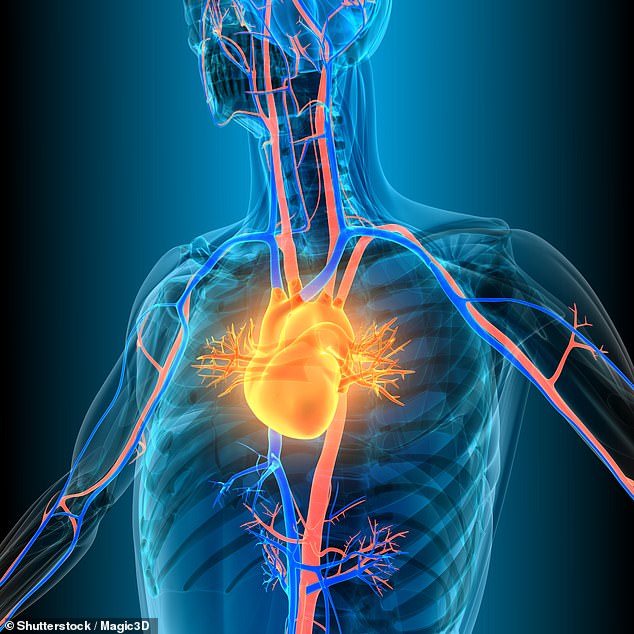- Iron is vital for making red blood cells, which carry oxygen throughout the body.
- But many women may miss lesser-known symptoms of iron deficiency
- These include tinnitus, hair loss, mouth ulcers and altered sense of taste.
Doctors have warned that women may be missing the warning signs of life-threatening iron deficiency by confusing them with harmless conditions.
Iron is vital for the creation of red blood cells, which help transport oxygen around the body.
But about one in ten women have iron deficiency anemia, twice as many as men who develop this condition.
A lack of iron (found in red meat and green leafy vegetables) in our diet can increase the risk of heart disease, serious infections, and kidney failure.
While doctors at testing firm London Medical Laboratory say many people will recognize fatigue, extremely pale skin, shortness of breath and palpitations as “red flags” of the condition, lesser-known symptoms include tinnitus, loss of hair and mouth ulcers.
Doctors have warned that women may be missing the warning signs of life-threatening iron deficiency by confusing them with harmless conditions. Iron is vital for the creation of red blood cells, which help transport oxygen throughout the body.

Many people will recognize fatigue, extremely pale skin, shortness of breath and palpitations as “red flags” of iron deficiency, but lesser-known symptoms include mouth ulcers, altered sense of taste, difficulty swallowing and pain or itching of the tongue.
The clinic also warns of altered sense of taste, difficulty swallowing, and pain or itching of the tongue.
Anemia can be caused by bleeding, so women with heavy periods are at higher risk.
Another cause is bleeding in the stomach or intestines, as a side effect of an ulcer or excessive use of anti-inflammatory medications.
“It is recommended that anyone experiencing these symptoms consult a doctor and consider having a blood test to detect possible causes,” says clinical director Dr. Avinash Hari Narayanan.
“Pregnant and younger women should pay special attention as they are at higher risk.”
Recent research published in the medical journal The Lancet reveals that the number of cases worldwide has increased to 1.9 billion, up from 1.5 billion in 1990. This is mainly due to poor diet.
In the UK, 57,000 people are admitted to hospital each year due to anemia, but many cases are preventable, says Dr Hari Narayanan.
‘Very often, anemia caused by iron deficiency can be easily treated with supplements and dietary changes.
“In the UK, hundreds of thousands of women of childbearing age are thought to have this condition, but many never suspect it.”
Those who believe they have iron deficiency anemia can request a blood test from their GP.


